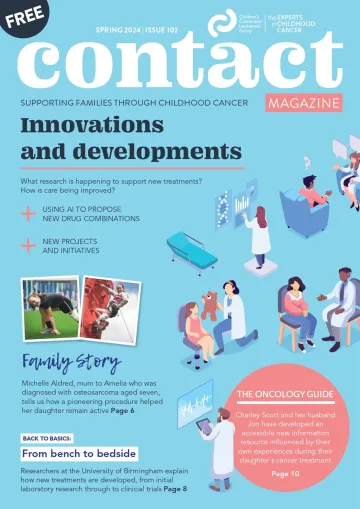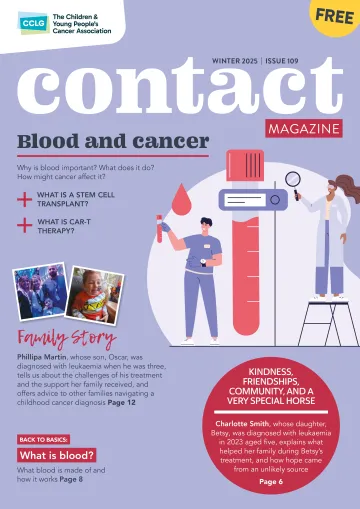Pritesh Patel, Senior Specialist Pharmacist in Paediatric Cancer at Great Ormond Street Hospital for Children and CCLG member
Q: Tell us about your career so far?
A: I qualified as a pharmacist in 2009. After a few years working as a junior pharmacist, rotating in different areas of pharmacy, I moved to Great Ormond Street where I developed an interest in cancer. I then moved to the cancer team and have been a senior pharmacist in paediatric cancer for 10 years. Throughout the past decade, I’ve worked mainly in patient-facing areas in inpatient and outpatient wards, but also in the chemotherapy manufacturing unit and have trained as a non-medical prescriber.
Q: Tell us about your role in supporting young people with cancer and their families.
A: Pharmacists have a wide range of roles supporting young people with cancer. On a day-to-day basis, we’re responsible for the safe and effective use of medicines to treat paediatric cancer. This includes making sure chemotherapy is prescribed and tailored to each individual patient, the patients have had the right tests and investigations before having the chemotherapy, and supportive treatments are as effective as possible. Where patients have side effects, we’ll help manage those as well as optimise future treatments. We also work with the wider pharmacy team to prepare chemotherapy in a safe manner, ready for giving it.
Where patients need to take medicines at home, we’ll go through those medicines with patients and their carers to make sure they fully understand how to give them, but also importantly what side effects to look out for. We also work with colleagues from different hospitals to coordinate the care of each patient so they can also have treatment closer to home. Medicine is ever evolving, and we’re constantly working to improve treatments, reduce side effects and improve outcomes. The way we treat cancer is progressing as we better understand the genetic causes of it.
We work on introducing new drugs and treatments for cancer, often in clinical trials. We also work with our medical and nursing colleagues to develop national guidelines for treating different types of cancer.
Where patients have side effects, we’ll help manage those as well as optimise future treatments. We also work with the wider pharmacy team to prepare chemotherapy in a safe manner, ready for giving it.
Q: What is the proudest moment of your career so far?
A: I particularly enjoy working on improving the way we do things and have worked on many improvement projects. I was proud to receive my Trust’s Improvement Champion of the Year after leading on a project to improve the tracking of chemotherapy within the Trust. The project revolutionised a previous paper-based system and made the process of manufacturing chemotherapy safer.
Q: What’s the most rewarding part of your job?
A: I have the great honour of witnessing many patients ring their end-of-treatment bell. I’m genuinely touched each time I see a child do it, surrounded by their loved ones. I’m humbled every day seeing this. The small part I play in the process of helping get patients to ring that bell helps keep me motivated.
Q: What is most challenging?
A: We’re often working without a lot of evidence behind what we do. Finding the time to do research and fill those evidence gaps is challenging in a busy environment, but it’s important to think about the patients in the future as well as the ones in front of you.
Q: Do you have any advice for children with cancer and their families?
A: No question is too silly. You have a team of highly-trained healthcare professionals who are there to support you. Make the most of the time you have with them, but also find out how you can get in touch with them if you have any questions later on. You’ll be given a lot of information throughout your treatment journey, and we all understand that it is impossible to digest all the information immediately.
From Contact magazine issue 102 - Spring 2024


